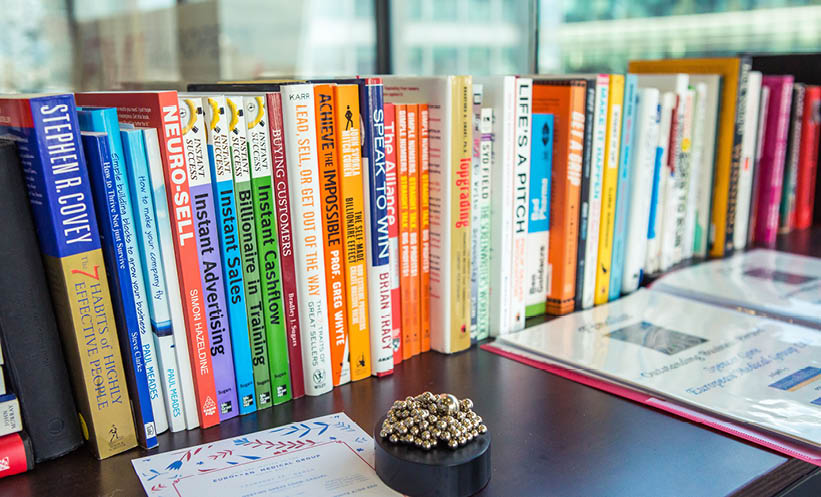Written by Spencer Gore | Chief Executive Officer, European Medical Group | @SJGore
![]()
Something we focus on a lot here at the European Medical Group (EMG) is continuous self-development, both at an individual and company-wide level. For me it is crucial to the growth of the company and ensuring we are best-in-class at everything we do as we seek our goal of becoming the go to place for healthcare professionals by 2025. This emphasis we have on self-improvement also gives everyone in the company the opportunity to massively increase their skills during the time they are with us. In short everyone is a winner.
I am a big believer that anyone can become an expert in anything if they spend enough time practising. In his book ‘Bounce’, Matthew Syed talks about the need to get 10,000 hours of purposeful learning in to become an expert in a particular area; this is something that we want to give all employees at the EMG the chance to do. Another major area for us is marginal gains, or critical non-essentials as Sir Clive Woodward calls them in his book ‘Winning’. Basically, if you look at what you’re doing, split it into 100 different pieces, and then try and improve each piece by half a percent, you’ll get a 50% improvement. For example, football teams will have a fitness coach, a nutritionist, a psychologist. I’ve even heard at Liverpool they have a throw-in coach this season! So they’re looking at every possible area in which they can improve. At the EMG we’re using the theory that if this works in sport why wouldn’t we try that in business?
As you can probably tell I read a lot of books, which is a huge part of my learning. Many of these are sport-related, but I have found that they translate into the business world just as well. Another favourite of mine is called ‘Will it Make the Boat Go Faster’ by Ben Hunt-Davis, in which he talks about the strategy his team used to help win the Olympic gold medal in rowing. Here, the team looked at everything they did and if it didn’t help the boat to go faster, they would stop doing it. These are the sort of philosophies that we use when looking to improve efficiency and output at the EMG.
To improve my own performance in running the business I get a lot of support from mentors and peers. I have mentors who I see on a quarterly basis, I’ve got a business coach I see every week, and I go to peer-to-peer support groups where we have different sessions: it might be how to grow your business, how to expand into the US, or how to look into digital marketing. At these we’ll sit together and discuss how different companies are going about achieving these goals and learn from each other’s successes and failures.
It doesn’t matter who you are or what position you hold in a company, whether you’re just starting out or at the pinnacle of your career, you should always be willing to take advice and learn from others. You wouldn’t expect someone like Usain Bolt, who’s the record holder at 100 metre sprints, not to have a coach because he’s already brilliant, and it’s exactly the same in business. You should always be looking to improve and to do that you sometimes need outside input. Sometimes it’s just good to talk to someone about the issues that come up in the business. You then realise that they’re usually everyday issues that happen in most companies, just on different scales.
I also believe that learning from failures is a critical part of self-development. In fact, I don’t even see them as failures, rather as opportunities to learn. One that stands out for me comes from the first business that I set up. Although it was profitable, my values and that of my business partner at the time were not aligned, so neither us were enjoying it as much as we should have been. When I walked away from there, I was able to take a lot of lessons in terms of what did and didn’t work, and apply those to the EMG, which have helped us grow far quicker than that last business. The biggest lesson was to always make sure my values are aligned with everyone else I work with, and that is therefore the number one thing we look for when recruiting new staff to the EMG.
It is using these approaches that we’re continuously improving the way we do things at the EMG as the business grows. This leads to high-quality content and clients who are consistently happy with the services we provide. Developing a team of gold medal winners whose values are completely aligned and who are each determined to constantly improve themselves is the number one thing that motivates me in business.








